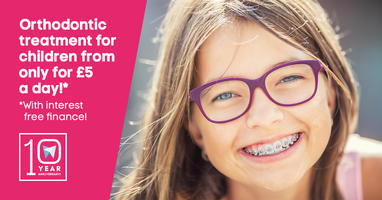 Orthodontic patients are automatically considered at heightened risk of cavities and other dental ills. An orthodontic device traps more plaque and can sometimes dry out the mouth, and these are conditions that make it more hospitable to bacteria. That is why orthodontists always tell their patients to take extra care when they brush their teeth and to be very diligent about their daily oral hygiene routines. But what does that mean exactly?
Orthodontic patients are automatically considered at heightened risk of cavities and other dental ills. An orthodontic device traps more plaque and can sometimes dry out the mouth, and these are conditions that make it more hospitable to bacteria. That is why orthodontists always tell their patients to take extra care when they brush their teeth and to be very diligent about their daily oral hygiene routines. But what does that mean exactly?
Brushing
Let’s start with brushing. The first thing to note is that you will need to brush more frequently now that you have braces. Brushing after every meal is ideal, even if it was just a light snack or a sandwich. If you do not have the time or are simply not in the position to brush your teeth it is not the end of the world, but you should definitely rinse thoroughly after every meal to prevent debris from settling in the crevices of your device or teeth. The increase in tooth brushing should also reflect on the type of toothbrush used. You should use a soft toothbrush when wearing orthodontic gear, andspecial toothbrushesjust for orthodontic patients are available. The use of dental floss and mouthwash is absolutely indispensable for patients undergoing orthodontic treatment.
Cleaning your appliance
The correct technique for cleaning your braces are also a little bit tricky. It is important that you let the bristles on the toothbrush penetrate the space between your teeth and the brackets. The wires on the device should also be cleaned, as plaque can start to form on them as well. Pay particular attention to the parts attached to your teeth (brackets), as they come into contact with food the most. After you are done thoroughly brushing, you should rinse with plenty of water, then add an extra layer of toothpaste that you do not rinse off. You may experience that you cannot get everywhere in between your device and your teeth. A special toothbrush just for the cleaning of gaps in teeth should be purchased in the event of unreachable gaps.
Which products to get
Most orthodontics patients do not need special toothpaste or special mouthwash, your regular one that you would usually use will be plenty enough. The only thing to look out for in general is that your toothpaste should have a high fluoride content, but this is advisable even if you are not currently wearing an orthodontic appliance.
The Tongue
It is especially important to clean the tongue. Toxins are released from the body into the tongue during sleep, and bacteria can live comfortably on the tongue as well. Most patients neglect to scrub the tongue however, and this can cause troubles.
These are the things to keep an eye out for, and I do hope it helps in clearing up any confusion as to what the dentist actually means when he says “more rigorous” oral health care.
image: 1.

